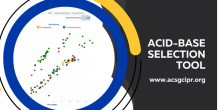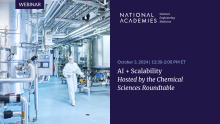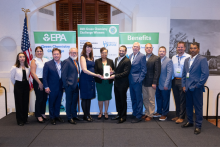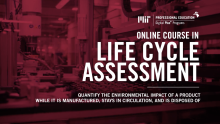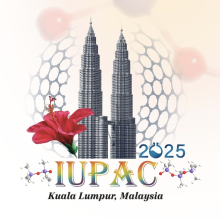sustainability
Acid-Base Selection Tool
The Acid-Base Selection Tool developed by the ACS Green Chemistry Institute Pharmaceutical Roundtable aims to enable scientists across industry and academia to choose more sustainable acids and bases. The Acid-Base Tool contains over 200 acids and bases which the user can filter by parameters including pKa (in water or acetonitrile), functional groups, melting point, and boiling point.
AI + Scalability| Hosted by the Chemical Sciences Roundtable
Join us October 3, 2024 from 12:30-2:00 PM ET for the second installment of the Chemical Sciences Roundtable’s 2024 webinar series on AI topics in the fields of chemistry and chemical engineering where Melanie Mesropian (AIChE) will moderate an interactive conversation between Leo Chiang (Dow Chemical) and Greg Mulholland (Citrine) about what it means to use AI tools sustainably with possible examples ranging from R&D efforts to product manufacturing.
Announcing the 2024 Green Chemistry Challenge Award Winners!
Emerald Isle Conference on Sustainable Chemistry and Engineering (EIC 2025)
Emerald Isle Conference on Sustainable Chemistry and Engineering.
EIC 2025
QUB Belfast 9-11th April 2025.
The aim of this international conference is to act as a venue for green chemists, engineers and educators to meet on the Emerald Isle, share best practice and strengthen collaboration, and for global thought leaders to offer insights and shape the future direction of green chemistry and engineering education, research and industrial implementation.
Life Cycle Assessment: Quantifying Environmental Impacts
Life cycle assessment (LCA) is a process to evaluate the environmental burdens associated with a product, process, service, or activity by identifying and quantifying energy, materials usage, and environmental releases, assessing the impact of those, and evaluating and implementing opportunities to affect environmental improvements.
Graduate School of Environmental Studies Summer School
Founded in 2020, The Graduate School of Environmental Studies (GSES) Summer School is a collaborative effort by Tohoku University faculty members and affiliates to showcase ongoing research in the GSES and serve as a networking platform for researchers. The core concept of the summer school is to host an engaging week of international lectures, through which faculty and students discuss future avenues of collaboration and academic exchanges.
IUPAC World Chemistry Conference 2025
IUPAC 2025 comprises two major IUPAC meetings, namely the 53rd IUPAC General Assembly (53GA) and the 50th World Chemistry Congress (50WCC) that together with other side events will attract more than 3,000 delegates from all over the globe. This marks the first time that these global chemistry extravaganzas are taking place in an ASEAN country, and this has created immense enthusiasm and excitement among chemists from this part of the world.
Sustainability Leader Summit
On Friday, September 27, as part of Climate Week NYC, the ACS Green Chemistry Institute® and Change Chemistry will host the inaugural Sustainability Leader Summit. Amidst the broad and multi-disciplinary climate discussions scheduled to take place, it is crucial to acknowledge the significant role chemistry plays in accelerating climate action, particularly through scalable, innovative green, and sustainable chemistry technologies.
Pagination
- Previous page
- Page 3
- Next page

